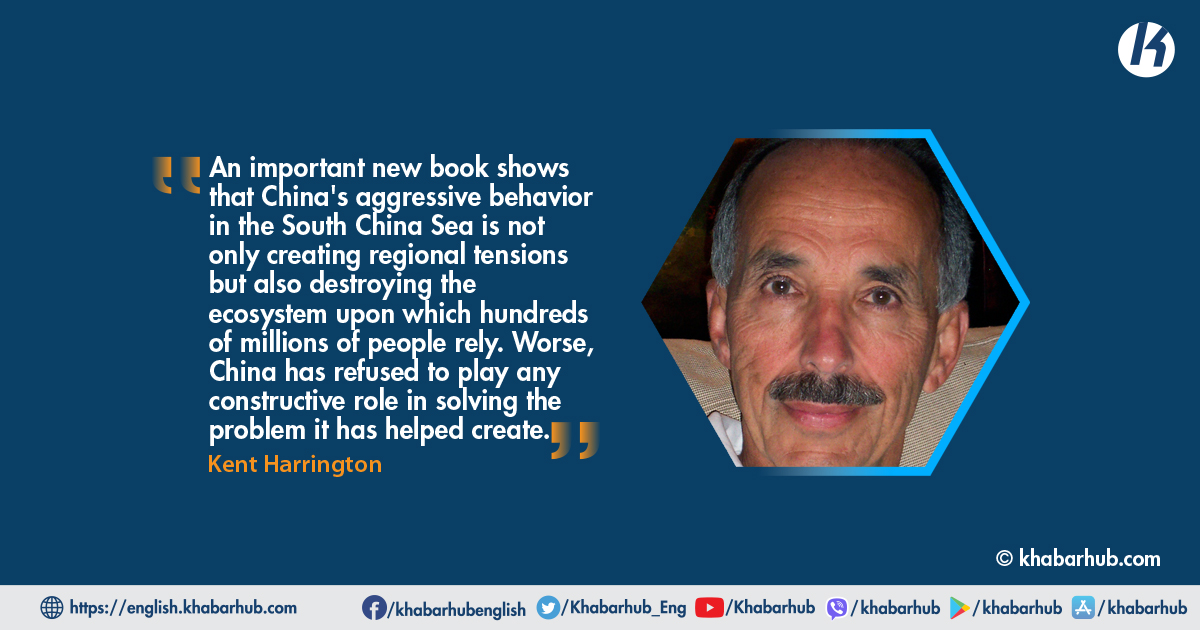With US and Chinese warships increasingly playing chicken, and China transforming atolls and outcroppings into militarized artificial islands, the South China Sea presents a striking picture of Sino-American strategic competition.
But China’s expansive assertion of offshore sovereignty is not only challenging others’ territorial rights and free navigation of international sea lanes. It also is threatening a central feature of the Southeast Asian ecosystem, and thus the region’s economic future.
China has refused to submit its territorial claims to international review, even though six of the ten countries surrounding the South China Sea have claims to various rocks, shoals, reefs, and resources within its 1.4 million square miles.
China also has ignored the Permanent Court of Arbitration’s (PCA) 2016 ruling affirming the Philippines’ historic rights to the Spratly Islands and dismissing China’s outsize claim to some 90% of the South China Sea (based on the so-called nine-dash line).
For Southeast Asia’s 600 million people, the territorial crisis in the South China Sea is not some distant future concern.
China’s actions already are harming the region’s maritime ecosystems and livelihoods. That is the key lesson of the book Dispatches from the South China Sea: Navigating to Common Ground, by James Borton of the Johns Hopkins Foreign Policy Institute.
Unfortunately, the Chinese government’s failure to do any of these things during the global COVID crisis is a harbinger as well. It has refused to provide basic information about the ecological impact of its island building, even as it expands its territorial claims elsewhere in Asia.
Putting aside geopolitics considerations, Borton focuses on the ground truth: Chinese exploitation of the South China Sea is threatening the region’s future through the ecological, environmental, and economic damage that it is causing.
Fishing is at the heart of Borton’s tale. According to the United Nations Food and Agriculture Organization, 15-56% (depending on the country) of all animal protein consumed in Southeast Asia comes from the neighboring seas. And the global market reflects this bounty.
Though it accounts for only 2.5% of the planet’s ocean surface area, the South China Sea produces 12% of the world’s fish catch. According to Borton, half of the world’s 3.2 million registered fishing boats operate there.
While overfishing is a growing global problem, China clearly contributes to it disproportionately with its long-distance fishing fleet of 2,500 ships (a number that rises to 17,000 if one counts unregistered and illegal vessels).
Borton marshals first-hand accounts from fishers, officials, and researchers to show how the South China Sea’s vital resources are being degraded.
Around 2,500 species of fish inhabit its waters, but since 2000, catch rates have declined by 70%, and large fish stocks have shrunk by 90%.
For years, China has unilaterally declared fishing bans, supposedly to protect fish stocks. And in 2021, it adopted a new law empowering its coast guard to use force against alleged violators from neighboring countries.
And yet, while China’s maritime militia has driven other countries’ boats elsewhere, Chinese fishing operations in the world’s proscribed zones have continued, such that China alone hauls in 20% of the world’s annual catch.
The ecological effects of China’s island-building are no less troubling. The South China Sea was once home to one-third of the world’s coral reefs, but according to Borton, around half have already been lost.
Coral reefs around the world are being degraded by the effects of climate change. But as the PCA noted in its 2016 ruling, China has accelerated this destruction in the South China Sea, by dredging up more than 100 square miles of healthy coral reefs to create artificial islands.
Borton sees the failure to resolve the South China Sea crisis as a harbinger of ecological disaster. Highlighting the work of scientists, researchers, and concerned officials, he helps us understand the nature of the challenge and its possible solutions.
“Just as the current pandemic requires a collaborative approach, the South China Sea requires scientific cooperation … and open access to data,” he writes. “Science diplomacy can establish … a starting point for regional cooperation” and “a much-needed pause in rising tension.”
But while Borton has offered a clear overview of the crisis in the South China Sea, comprehending the problem is no guarantee that those with the means to address it will take up the challenge.
Unfortunately, the Chinese government’s failure to do any of these things during the global COVID crisis is a harbinger as well. It has refused to provide basic information about the ecological impact of its island building, even as it expands its territorial claims elsewhere in Asia.
And its strong-armed tactics and steady militarization of its newly created offshore real estate hardly suggest that it intends to share data, much less play a constructive role in preserving the region’s ecosystems.
Borton is certainly correct that citizens and scientists ought to collaborate to find ways to bridge the political divide in the South China Sea. But, given China’s intransigence, businesses may be better positioned than governments to take the steps he proposes.
From start-ups to technology giants, the private sector is creating new tools that will shed more light on the situation. Satellite systems and artificial intelligence are already being used to collect and analyze massive amounts of climate data for clients and researchers.
Microsoft, Google, and Amazon are gathering and publishing more climate data, and business leaders like BlackRock CEO Larry Fink are pushing companies to align their operations with the global climate agenda.
But while Borton has offered a clear overview of the crisis in the South China Sea, comprehending the problem is no guarantee that those with the means to address it will take up the challenge.
(Kent Harrington, a former senior CIA analyst, served as national intelligence officer for East Asia, chief of station in Asia, and the CIA’s director of public affairs)
Copyright: Project Syndicate









Comment